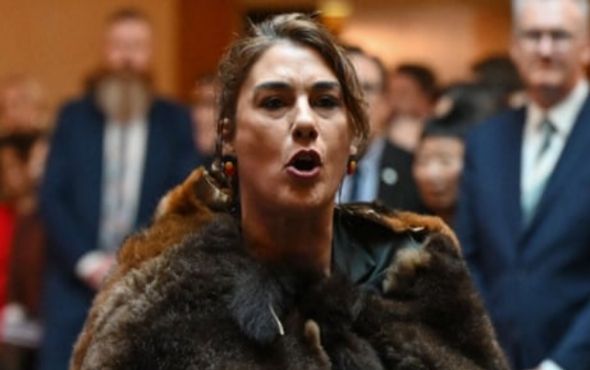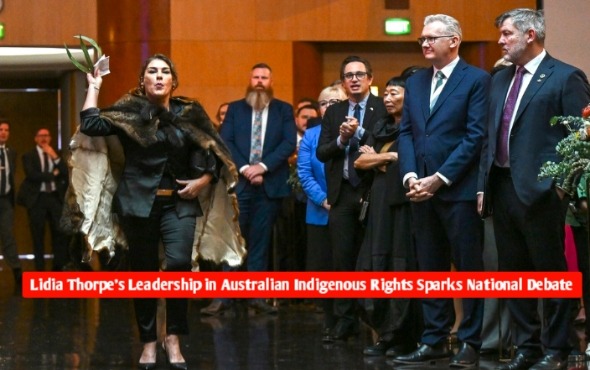Lidia Thorpe’s Leadership in Australian Indigenous Rights Sparks National Debate” Thorpe’s role in the Senate, where she has served as an independent after departing from the Australian Greens,
Lidia Thorpe’s Leadership in Australian Indigenous Rights
In October 2024, Senator Lidia Thorpe continues to be a prominent figure in Australian politics, particularly in her efforts to advocate for Indigenous rights. Representing the state of Victoria, Thorpe, a proud DjabWurrung Gunnai Gunditjmara woman, has gained national attention for her vocal stance on Indigenous sovereignty, the environment, and racial justice.
Thorpe’s role in the Senate, where she has served as an independent after departing from the Australian Greens, has been both influential and controversial. Known for her fierce independence and unapologetic advocacy, she has consistently called out the Australian government for what she sees as a failure to address the long-standing inequalities faced by First Nations people.
One of the central issues Thorpe has been raising in recent months is the Voice to Parliament, a proposed advisory body that aims to give Indigenous Australians a greater say in laws and policies that affect their communities. Thorpe has been critical of the Voice, arguing that it doesn’t go far enough to address the systemic issues of colonization. Instead, she advocates for a treaty process that recognizes Indigenous sovereignty and ensures self-determination for First Nations people.

This position has drawn both support and criticism. Many Indigenous activists and communities back Thorpe’s call for a treaty as the only way to achieve meaningful change. They argue that it would provide a legal foundation for Indigenous Australians to negotiate on equal footing with the federal government. Others, however, believe that the Voice to Parliament is an important step toward reconciliation and see Thorpe’s rejection of it as counterproductive.
Despite the political divide, Lidia Thorpe’s influence remains undeniable. Her speeches in the Senate, often emotional and impassioned, have inspired younger generations of Indigenous Australians to become more politically engaged. At the same time, her confrontational style has sparked controversy, with some critics accusing her of being divisive.
In addition to her advocacy for Indigenous rights, Thorpe has been a vocal critic of Australia’s environmental policies, particularly around climate change and land management. She argues that Indigenous knowledge and practices should play a central role in managing the land, especially as Australia faces increasingly severe climate events.
Her activism has not come without challenges. Thorpe has faced personal attacks and racism, both online and in public life, as well as scrutiny from the media. Despite these obstacles, she remains determined to push for what she describes as “real justice” for Indigenous Australians.
As Australia grapples with how best to address its colonial past and present, Lidia Thorpe continues to be a formidable voice in the conversation. Whether through her advocacy in Parliament or her activism on the streets, Thorpe’s push for treaty and sovereignty ensures that Indigenous issues will remain front and center in Australian political discourse for years to come.
How did you like the information given in our article today, please tell us in the comment section and for more such posts, follow our page the News House, thank you
Reed more… PRABHSIMRAN SINGH: SHINES AS RISING STAR IN INDIAN CRICKET A DEEP DIVE INTO HIS JOURNEY AND IMPACT


